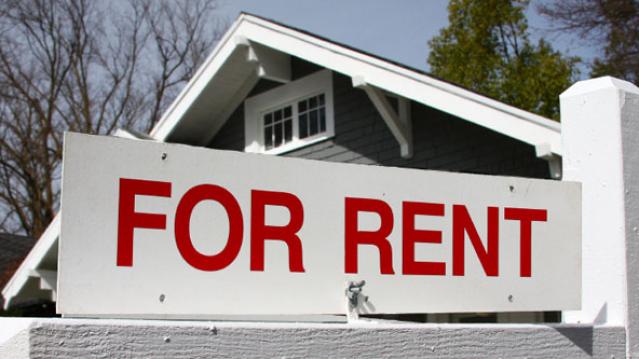More Americans Struggling to Pay the Rent

As the portion of Americans renting rather than owning their homes has grown in recent years, so has the number of Americans for whom the monthly rent check has become a burden.
In 2013, almost half of all renters were spending more than 30 percent of their income on housing, with more than a quarter paying half their income to their landlord, according the "State of the Nation’s Housing 2015" report issued today by the Harvard Joint Center for Housing Studies.
Rising rents aren’t just impacting low-income consumers. One in five renters earning $45,000-$75,000 is paying at least a third of their income in rent.
Related: There’s Only One Way Rents Will Go: Sky High
The increase in rental rates represents a byproduct of the falling home ownership rate, which dropped to 63.7 percent in the first quarter of this year, the lowest level since 1989. The rate has fallen for the past eight years and appears poised to continue its decline.
That puts the 2010s on pace to be the strongest decade for rental growth in history, and the national vacancy rate fell to just 7.6 percent, its lowest level in 20 years, according to the Harvard report. The trend reflects increased demand from millennials, as well as a growing preference for renting in households aged 45-64 and higher-income households.
Rents rose 3.2 percent last year, twice the rate of overall inflation, spurring builders to begin construction on more multi-family units than in any years since 1989. “And if job growth continues to pick up, we could see even more demand, as young adults move out of their parents’ homes and into their own apartments,” Joint Center senior research associate Daniel McCue said in a statement.
Will Trump's Tax Cuts Really Happen? Economists Are Surprisingly Optimistic
Despite all the thorny questions swirling around President Trump's nascent tax reform plan, 29 of 38 economists surveyed by Bloomberg in a monthly poll said they expect Congress to cut taxes by November of next year.
The hitch: The economists don’t expect the cuts will help the economy much. The median projection of a larger group of 71 economists is for 2018 growth of 2.3 percent, up only slightly from 2.1 percent this year — and by 2019, the economists see growth slipping back to 2 percent.



